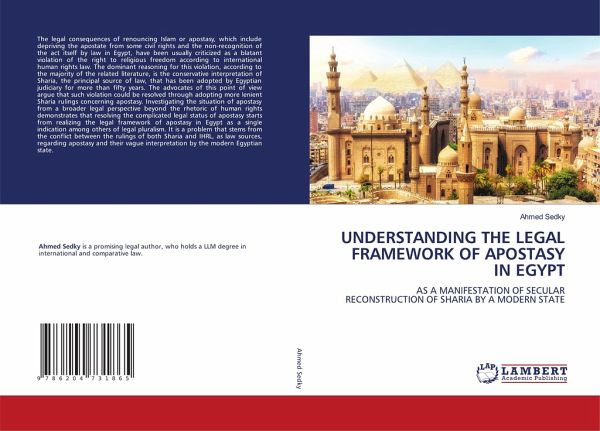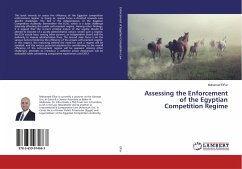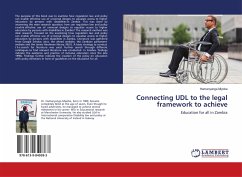
UNDERSTANDING THE LEGAL FRAMEWORK OF APOSTASY IN EGYPT
AS A MANIFESTATION OF SECULAR RECONSTRUCTION OF SHARIA BY A MODERN STATE
Versandkostenfrei!
Versandfertig in 6-10 Tagen
53,99 €
inkl. MwSt.

PAYBACK Punkte
27 °P sammeln!
The legal consequences of renouncing Islam or apostasy, which include depriving the apostate from some civil rights and the non-recognition of the act itself by law in Egypt, have been usually criticized as a blatant violation of the right to religious freedom according to international human rights law. The dominant reasoning for this violation, according to the majority of the related literature, is the conservative interpretation of Sharia, the principal source of law, that has been adopted by Egyptian judiciary for more than fifty years. The advocates of this point of view argue that such ...
The legal consequences of renouncing Islam or apostasy, which include depriving the apostate from some civil rights and the non-recognition of the act itself by law in Egypt, have been usually criticized as a blatant violation of the right to religious freedom according to international human rights law. The dominant reasoning for this violation, according to the majority of the related literature, is the conservative interpretation of Sharia, the principal source of law, that has been adopted by Egyptian judiciary for more than fifty years. The advocates of this point of view argue that such violation could be resolved through adopting more lenient Sharia rulings concerning apostasy. Investigating the situation of apostasy from a broader legal perspective beyond the rhetoric of human rights demonstrates that resolving the complicated legal status of apostasy starts from realizing the legal framework of apostasy in Egypt as a single indication among others of legal pluralism. It is a problem that stems from the conflict between the rulings of both Sharia and IHRL, as law sources, regarding apostasy and their vague interpretation by the modern Egyptian state.












